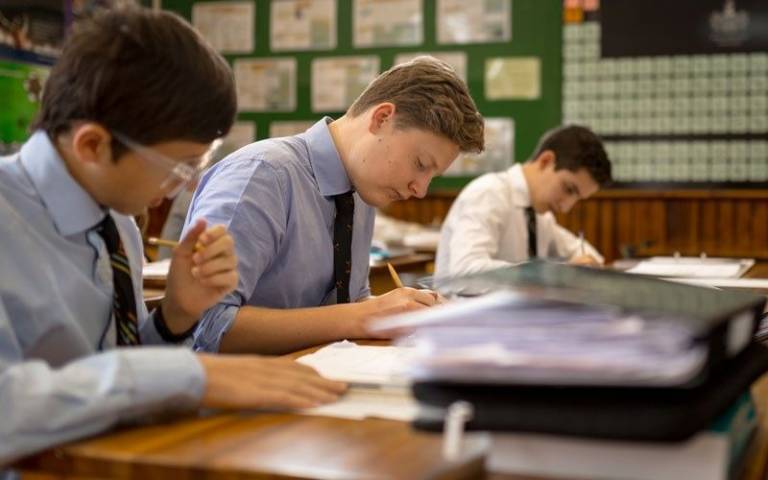Parents with traditional values are more likely to send their children to private school
17 March 2020
Parents with higher levels of ‘traditional’ values are more likely to send their children to private school, UCL Institute of Education (IOE) research reveals.

The research team, led by Dr Jake Anders (UCL Centre for Education Policy and Equalising Opportunities) used quantitative data from the Millenium Cohort Study to compare the characteristics of parents whose children attend private schools with parents whose children do not.
The team analysed the responses parents gave to a set of statements about their views on family life when their child was one year old. This included answers to statements such as ‘couples who have children should not separate’ and ‘it is alright for people to have children without being married’. Parents who strongly agreed that ‘couples who have children should not separate’ and disagreed with ‘it is alright for people to have children without being married’ were seen as more ‘traditional’.
The team found that even when families had similar levels of income, parents with higher levels of these ‘traditional’ values were more likely to send their children to private school. Among parents with low levels of ‘traditional’ values it is much less likely that they will choose private schooling for their children, no matter how much income they have.
The researchers found that nearby state schools are also linked to whether families send their children to private schools or not. They observed that families who live closer to academically selective grammar schools, or who live closer to schools judged ‘Outstanding’ by Ofsted, are less likely to send their children to private schools.
The researchers note that although some of this difference could be caused by families deliberately moving, in order to live close to these schools, this link persists among those with similar levels of family income and other key characteristics. This suggests these patterns aren’t only about differences in house prices near to such schools, for example.
Dr Jake Anders said: “This study provides new evidence about some of the reasons – beyond the basic finances – that parents make decisions about private schooling.
“Among parents with low levels of ‘traditional’ values it is much less likely that they will choose private schooling for their children, no matter how much income they have. Adding to this, some parents who would otherwise choose private education are happy to send their children to a state school if they live close to one with certain characteristics, such as a high Ofsted rating.
“Findings such as these should make us mindful of the complexities of decisions parents make about private schooling and the implications these have for the composition of pupils in both state and private sectors.”
The research team comprised Dr Jake Anders, Professor Francis Green, Dr Morag Henderson and Dr Golo Henseke.
Links
- Dr Jake Anders' academic profile
- Read the paper: ‘Determinants of private school participation: All about the money?’
- Read the CEPEO blog: 'Who goes to private school? Looking beyond the money.'
- Q&A with Dr Jake Anders
- Centre for Education Policy and Equalising Opportunities
- Department of Learning and Leadership
- Department of Education, Practice and Society
- Department of Social Science
Image
"Wellington College" Credit: Wellington College Source: Flickr (CC BY-NC 2.0)
Media Contact
Rowan Walker
Tel: +44 (0)20 3108 8515
Email: rowan.walker [at] ucl.ac.uk
 Close
Close

